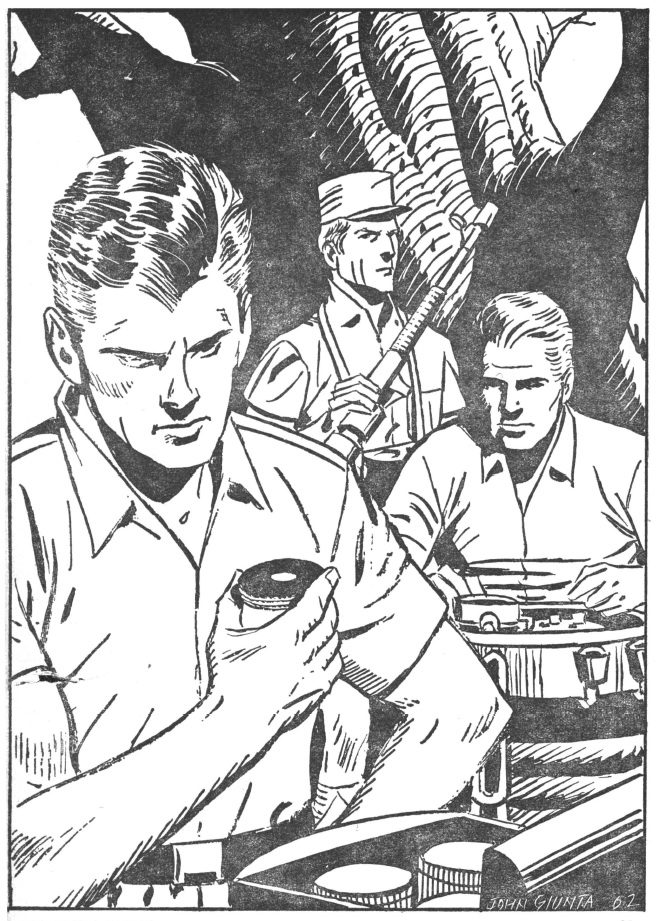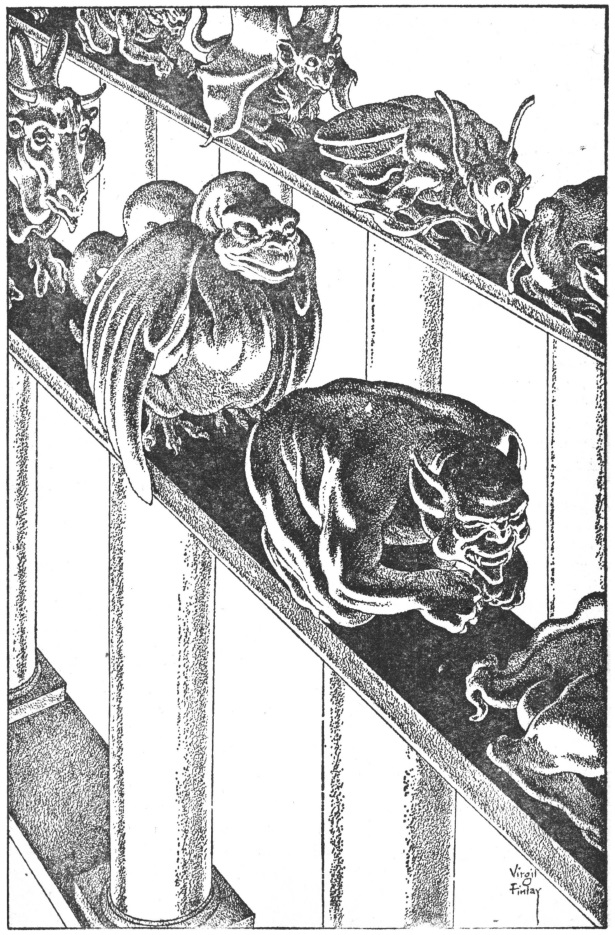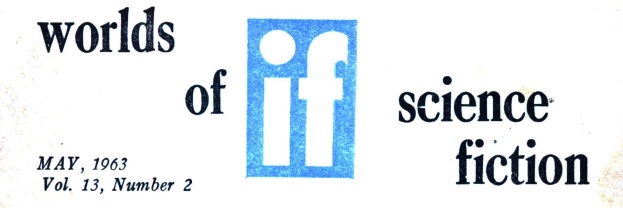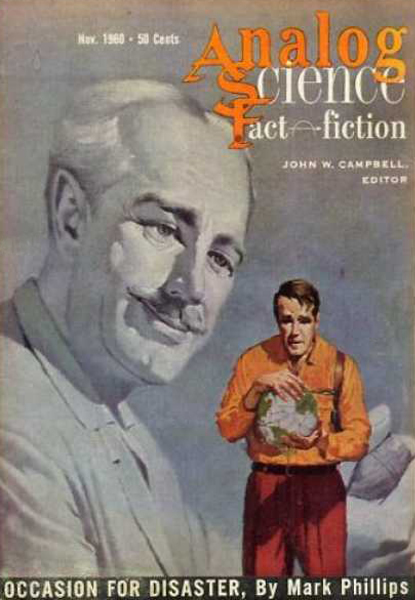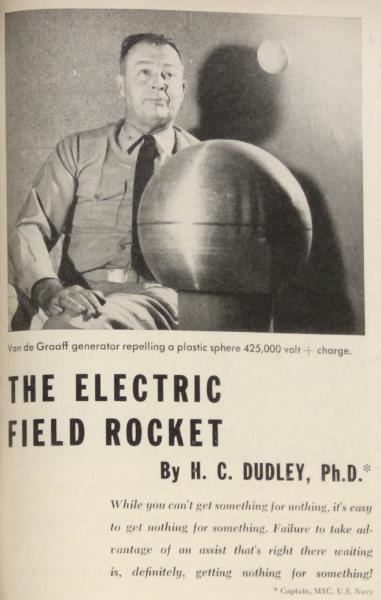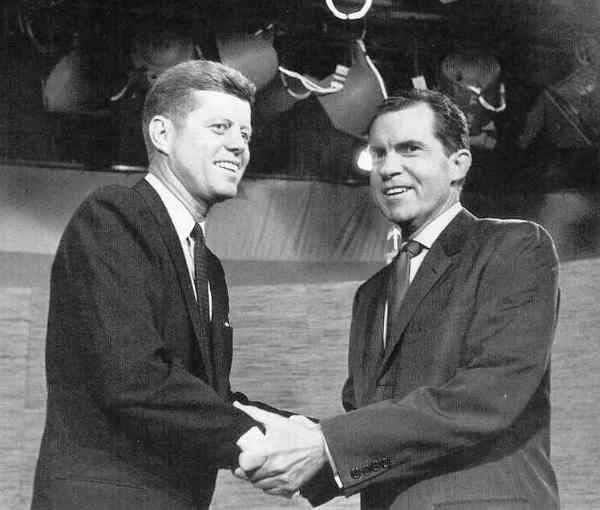
by Gideon Marcus
Last week, we marked the 187th birthday of the United States in traditional fashion. We launched fireworks, marched in parades, read the Declaration of Independence, and otherwise honored the creation of the world's oldest extant constitutional democracy. There is a lot to be proud of in the last two centuries of progress, which has seen our nation elevated to the status of first among equals.

At the same time, we still have a long way to go, as evidenced by the numerous Civil Rights protests that have occurred and are occurring around the country every day. In them, one can see echoes of the original revolution, the one sparked by the land-holding, enfranchised WASPs of the colonies. Let us hope that the benefits secured by that small group will one day extend to everyone.

Protesters of segregation at Gwynn Oak Park, just outside Baltimore, including Allison Turaj, who had a rock thrown at her.
Speaking of revolutions, every two months, we get to take the pulse of the one started by H.L. Gold, who threw down the gauntlet at the feet of pulp sci-fi in 1950 when he started his scientifiction magazine, Galaxy. It was once a monthly magazine, but since 1959 it has been a half-again-sized bi-monthly. This was a cost-saving measure, as was the reduction of writers' rates. The latter caused a tangible (if not fatal) drop in quality, and it is my understanding that it either has recently been or will soon be reversed.
Thus, the August 1963 Galaxy is a mixed bag, with standout stories by lesser authors and lesser stories by standout authors. Take a look:
Hot Planet, by Hal Clement
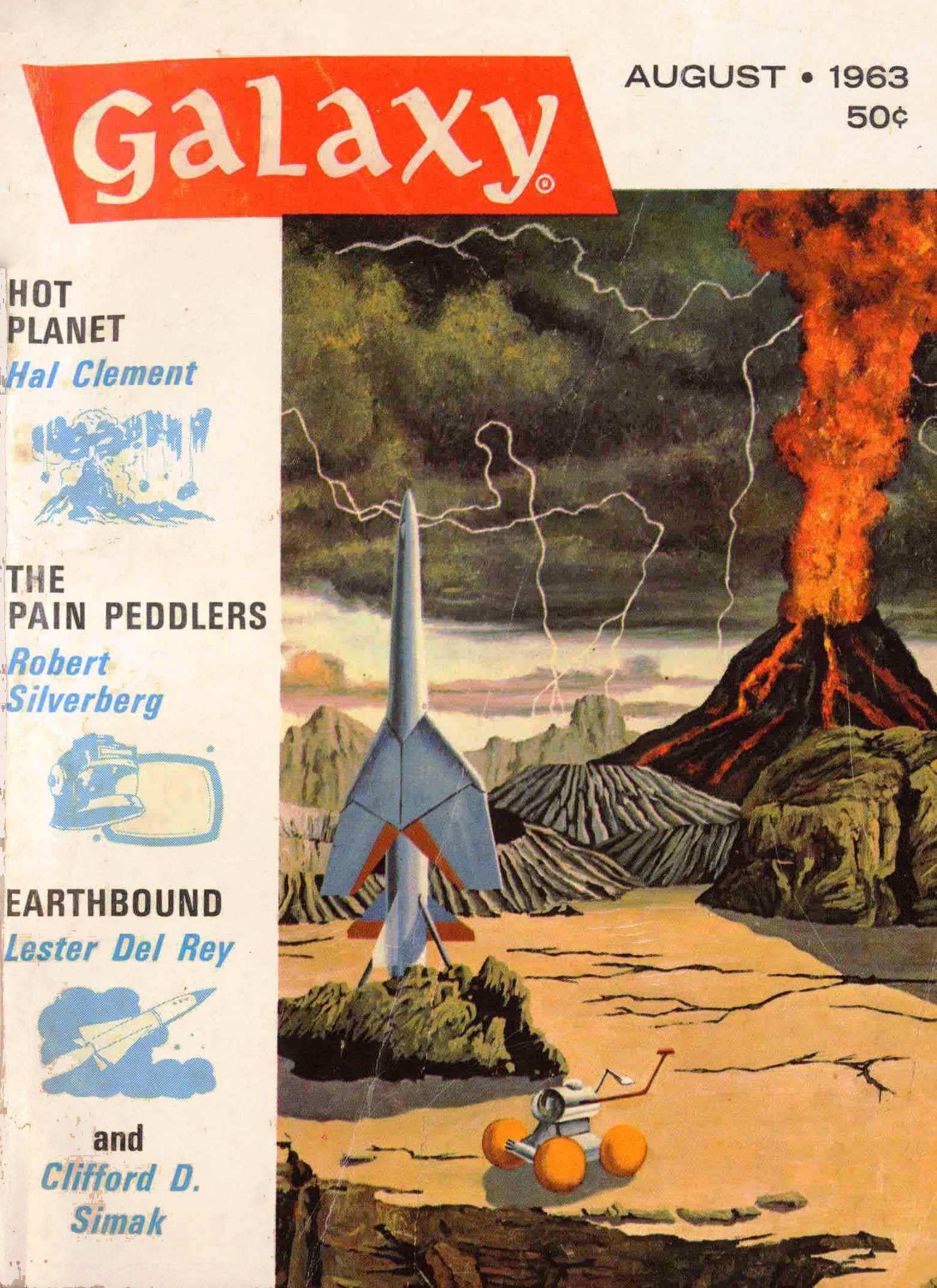
The once great Hugo-winner, Hal Clement, again brings us a scientifically rigorous but largely unreadable tale of an alien planet. Last time, it was The Green World, about a young planet with paradoxically old features. This time, the subject is closer to home. Mercury, as we have described previously, orbits closest to the sun of all the planets, and the sun's gravity likely has frozen the planet's rotation such that it always presents one face to its parent.
Clement posits that Mercury is so close to the sun, in fact, that the tides (the differential of gravity between the near and far sides of the planet) are strong enough to melt the planet's insides. This, in turn, causes tremendous vulcanism such that giant cones belch forth internal gasses and give the little world an atmosphere (albeit a scalding and unbreathable one). This is the Mercury portrayed in The Hot Planet.
It's a fascinating idea, one I've not seen advanced in any of the scientific literature. It's also highly plausible, and I suspect similar tidal heating is underway in some of the close-in moons of the giant planets.
Unfortunately, the characters are cardboard, the plot is threadbare, and the writing soporific. Perhaps Analog can pick Clement up to be their regular science writer, a role for which he is likely better suited. Two stars.
The Great Nebraska Sea, by Allan Danzig
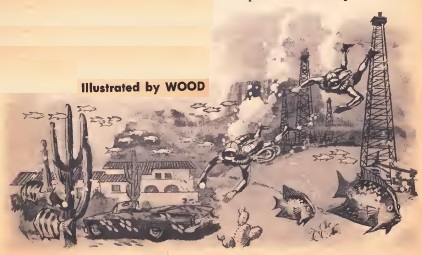
I've got a friend whose bag is disaster stories. The bigger, the better. Climatological events, nuclear wars, flashy alien invasions — he imagines them in the backdrop of his daily life to make it more exciting. He'd really dig this new "history" written by newcomer, Allan Danzig.
It's a simple, straightforward recounting of the great crustal shift of '73 that caused the Great Plains to sink dozens of feet and a great rift at the Gulf Coast to form, causing the ocean to permanently flood the central United States. The event that caused the deaths of 14 million Americans is spun positively, seen through the lens of a far future that has used the Great Nebraska sea to great economic advantage. Lyric in its matter-of-factness, it's a fun read. Four stars.
Earthbound, by Lester del Rey
A tiny vignette which asks the question, "At one point does a prison the size of the world become intolerable confinement?" It punches. Four stars.
The Problem Makers, by Robert Hoskins
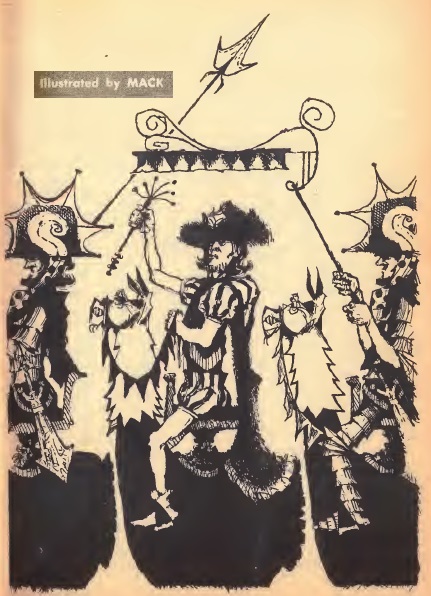
A covert agency of the Terran Empire is tasked with "advancing" the other planets of the galaxy. Their philosophy is essentially Utilitarianism — if it benefits the most people, it is worthy…no matter how many people must suffer along the way. Decently written, but it's a smug story, the kind I'd expect in Analog. If Hoskins meant it as satire, it was too subtle for me. It offended. Two stars.
The Pain Peddlers, by Robert Silverberg

This is one of those truly unpleasant tales that I can't help admiring. In the future, the medical credo has evolved to, "First, do no harm — unless you can make a buck by televising it." And future television lets you feel as well as watch. So a nation of sado-masochists gets to viscerally participate from the viewpoint of the patient, who undergoes surgery without anesthesia! The Pain Peddlers is a dark tale of the production of such hospital shows.
It's good, feeling like it might have come from the pen of Robert Sheckley (where are you these days, Bob?) Four stars…but skip it if you're squeamish.
Here Gather the Stars (Part 2 of 2), by Clifford D. Simak

Last month, Cliff Simak introduced us to Enoch Wallace, a Civil War soldier who retired to rural Wisconsin, ultimately to become the immortal operator of a cosmic way-station. There, he facilitates the teleportation of aliens across the galaxy. This issue concludes Wallace's tale.
I mentioned in the first article that the work seemed strangely unpolished. It meandered, and there was much duplication, as if the novel had not been strongly edited. That feeling is even stronger in this second half, in which new concepts are introduced in an ad hoc matter.
There are many several-page sequences which are cul-de-sacs, adding little to the story, and not particularly engaging in and of themselves (for instance, when Wallace goes into his virtual shooting gallery and fights a sequence of imaginary beasts). We get a parade of alien visitors and gifts and Wallace's somber musing upon them, and sprinkled among them are plot points quickly introduced and resolved:
One of Wallace's actions, done at the request of an alien visitor, nearly causes Earth to be barred from admission to the interstellar group. There is a Talisman that ties the universe together, but its keeper is unworthy, and so the galactic community is falling apart. Then it turns out the Talisman has been stolen, and its thief chooses Earth to hide out on. He is thwarted in his plans by Wallace as well as Lucy, the psychic healer, who it turns out is perfectly suited to be the new keeper. All of this happens in Part 2 — none of it is hinted at in Part 1!
This all could have made for an interesting story, but the pacing is jagged. In the end, Simak presents a dozen components but fails to unify or develop them in a satisfying manner. It saddens me, for Simak is a great author, and there is the germ of a great story here. As is, it's a three star novel badly in need of a complete rewrite.
The Birds of Lorrane, by Bill Doede
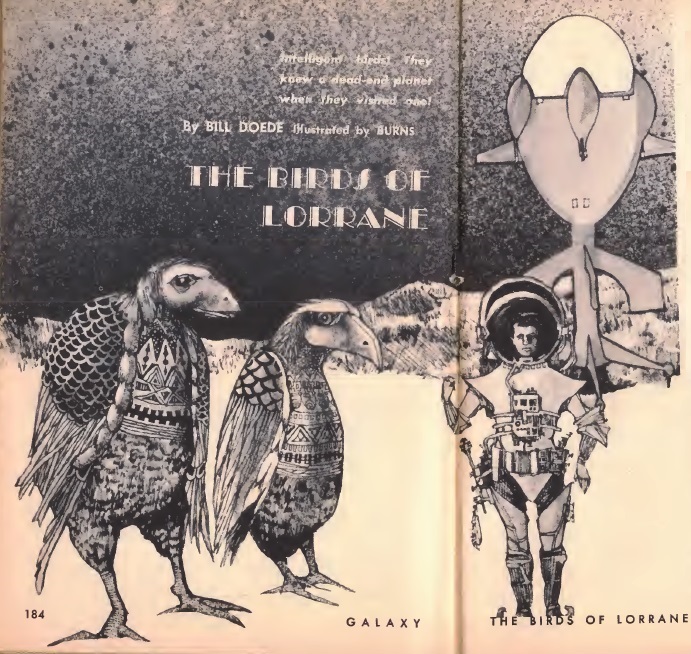
Last up, Doede brings us the story of an Earther who plunges far beyond the pale of humanity to a desert world on which (it has been told) live a pair of sentient, talking birds. He finds them, but at such cost that he is left at death's door. Are the birds his salvation or his ruin? Interesting, if a bit underdeveloped. Three stars.

All in all, the revolution seems to have hit a rough patch. Perhaps Galaxy's new editor, Fred Pohl, can weather this literary Valley Forge such that his ragtag army of new recruits can yet prevail…



